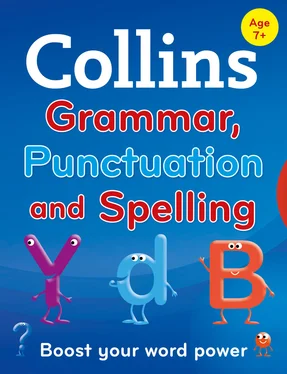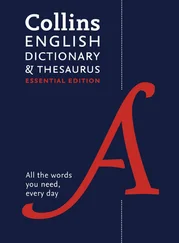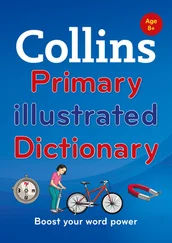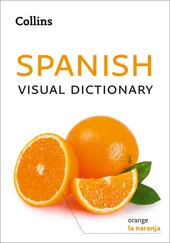You can read more about relative pronouns on page 14.
You can also write a relative clause without the relative pronoun that or which:
She has lost the book that I lent her.
She has lost the book I lent her.
That is the car which he has just bought.
That is the car he has just bought.
Sentences
A sentence is a group of words that expresses an idea or describes a situation. A sentence must have:
• a capital letter at the beginning of the first word
• a full stop, a question mark or an exclamation mark at the end
• a verb
Sentence types
A sentence can be one of four things.
Statement
This sentence tells you something. A statement usually starts with the subject of the sentence. It ends with a full stop:
Berlin is the capital of Germany.
I am going home now.
It’s raining.
Question
This sentence asks for information. It begins with a questioning word like what, who, which, where, when, how or why. It can also begin with a verb. It ends with a question mark:
What is your name?
Have you seen my keys?
Where is Mount Everest?
Command
This sentence gives orders or instructions. You call the verb used for commands ‘the imperative’. You usually put it at the start of the sentence. It can end with a full stop or, if you want to show that something is very important, an exclamation mark:
Give me the paper.
Come over here.
Stop right there!
If you give a polite command, the verb might not be at the start of the sentence:
Please stop talking.
Exclamation
This sentence expresses a strong feeling. It ends with an exclamation mark:
What a laugh!
You’re here at last!
I never want to see you again!
Sentence structure
There are different types of sentences which can be grouped by how the sentence is written.
Simple sentence
A simple sentence contains just one main clause:
Zoya threw the ball.
Today is my birthday.
Compound sentence
A compound sentence contains two or more main clauses joined by a conjunction:
Zoya threw the ball and Marion caught it.
Today is my birthday but my party is tomorrow.
Complex sentence
A complex sentence has a main clause and one or more subordinate clauses:
Zoya threw the ball to Marion, who was standing on the other side of the pitch.
Today is my birthday, although my party isn’t until tomorrow, which is a pity.
Parts of the sentence
Sentences contain a number of parts.
Subject
The subject is the person or thing that does the action in a sentence. It is a noun, a noun phrase or a pronoun. It comes before the verb.
Louise fell asleep.
Dogs don’t like fireworks.
The red car is parked on the other side of the road.
She threw a cushion across the room.
Verb
A sentence must have a verb or a verb phrase.
The man walks slowly up the hill.
Jessica fainted.
Adam is having a haircut.
People have lived in this place for hundreds of years.
Object
The object is the person or thing that has the action of the verb done to it. It is a noun, a noun phrase or a pronoun. It comes after the verb. Not all sentences have an object.
Kim loves chocolate.
I have lost my new green rucksack.
Are you going to ask him to the prom?
Complement
A complement is a word or phrase that tells you something about the subject of the sentence. It is a noun, a noun phrase, an adjective or an adjective phrase. Not all sentences have a complement. The verbs be, become, feel and seem need a complement.
Laura is an architect.
They became very good friends when they worked together.
The boys felt silly when they had to dress up.
She seems perfectly happy.
Adverbial
An adverbial can be an adverb, an adverb phrase, a preposition clause or a subordinate clause. It tells you something about how the action in the sentence is happening, for example when it is happening, where it is happening, how it is happening, how often it is happening or why it is happening. Not all sentences have adverbials.
Suddenly, it started to rain heavily.
Breathing quietly, Lee crept out of the room.
You probably won’t notice it after a while.
I’ll make a cup of tea when I’ve finished reading this.
An adverbial can go anywhere in a sentence:
I greatly admire your courage.
The door closed with a loud bang.
Honestly, I didn’t mean to be rude to you.
When the adverbial is at the start of the sentence it is called a fronted adverbial. These are followed by a comma:
Seriously, are you wearing that?
At the end of the match, the players shook hands.
Bitterly disappointed, the home supporters left the stadium quickly.
When the cake is golden brown, take it out of the oven.
Active voice and passive voice
There are two different ways of presenting the same information in a sentence. These are the active voice and the passive voice. In the active voice, the subject of the sentence does the action:

In the passive voice, the subject of the sentence has the action done to it:


The passive voice uses be with the past participle of the verb:
is being fed
was chased
It usually sounds more natural to use the active voice when you are writing, but sometimes it is good to use the passive voice if you do not know who did something or you do not want to blame someone.
The bus shelter has been vandalised.
The front door has been left open again.
Making words
English is very good at making new words from existing words. This can be done by putting words together or by adding prefixes and suffixes.
Prefixes
A prefix is a letter or group of letters that is added to the beginning of a word to make a new word. Adding a prefix to a word changes the word’s meaning. When you write a prefix on its own, you put a hyphen after it, for example un-. When you add the prefix to a word to make a new word, you do not keep the hyphen (except in a very few cases which you can see on pages 56– 57):
un‑ + usual = unusual
un‑ + cover = uncover
un‑ + happiness = unhappiness
The prefix un- means ‘not’ so when you add it to a word you give it the opposite meaning:
un‑ + friendly = unfriendly (not friendly)
Other prefixes that do this are dis-, non- and in-:
dis‑ + agree = disagree
non‑ + fiction = nonfiction
in‑ + expensive = inexpensive
When you put in- before words that begin with certain letters, the n changes:
• before l, in- changes to il-: il‑ + legal = illegal
• before m, in- changes to im-: im‑ + modest = immodest
• before p, in- changes to im-: im‑ + patient = impatient
• before r, in- changes to ir-: ir‑ + rational = irrational
Other prefixes that are useful to know are:
| prefix |
meaning |
example |
language it comes from |
| anti- |
against |
anticlockwise |
Greek |
| pro- |
in favour of |
prowar |
Latin |
| de- |
undo or remove |
defrost |
Latin |
| bi- |
two or twice |
bimonthly |
Latin |
| auto- |
self |
autobiography |
Greek |
| ante- |
before |
antenatal |
Latin |
| co- |
together |
cooperate |
Latin |
| pre- |
before |
predate |
Latin |
| re- |
again |
reheat |
Latin |
| circum- |
round or about |
circumference |
Latin |
| ex- |
out or outside of |
external |
Latin |
| inter- |
between |
international |
Latin |
| mis- |
wrong or false |
misbehave |
Old English |
| sub- |
under |
subway |
Latin |
| super- |
larger, over or beyond |
superpower |
Latin |
| mini- |
small |
miniskirt |
English |
| over- |
too much |
overeat |
English |
| trans- |
across |
transmit |
Latin |
| tele- |
distant |
television |
Greek |
| ultra- |
extremely |
ultramodern |
Latin |
| micro- |
small |
microcomputer |
Greek |
| tri- |
three |
tricycle |
Latin |
Suffixes
Читать дальше















